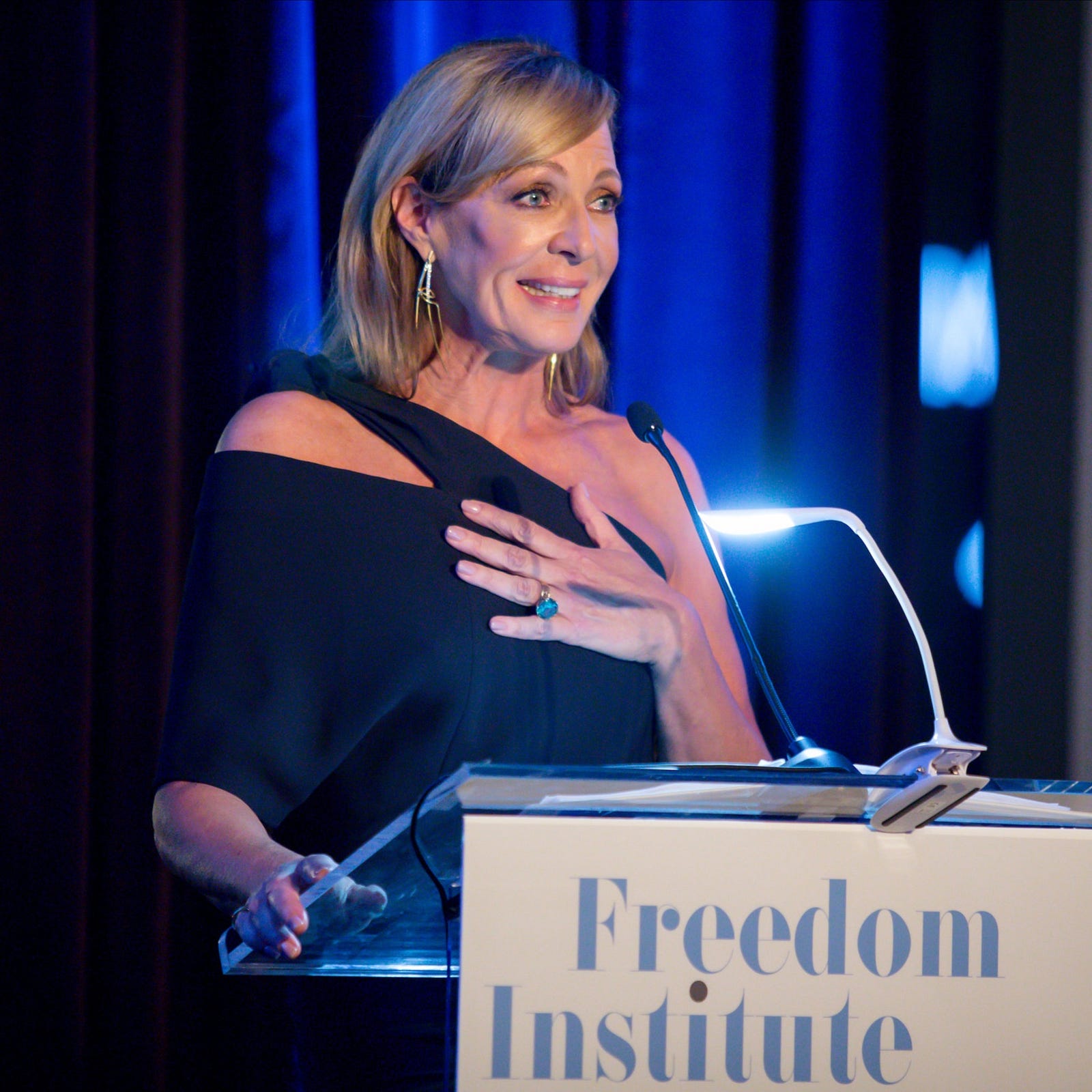Freedom Institute of New York City honored Emmy and Oscar wining actress Allison Janney, in recognition of her contributions in raising awareness about the issues surrounding addiction and recovery. In her very moving acceptance speech, Ms. Janney opened up about the experience with addiction from her own life, that made her want to be part of CBS’s Mom.
“Addiction rips through so many families and mine is no exception. In 2011, I lost my brother Hal to this disease. He was an addict and an alcoholic. He was also one of my favorite people on this planet. He was incredibly charming and quick witted, kind and generous, smart and quick to laugh. I miss him every day”.
Many in the audience nodded in recognition having come through the same door. Their lives too had been torn by addiction, either their own or that of a father, mother, husband, child, wife, sister or friend. But they were also at this gala because of their personal experience with recovery.
Addiction needn’t be the end of the story.
Janney went on to say……
“My idea of recovery was limited, because I associated sobriety with stopping. You know, you get sober…you stop drinking, stop doing drugs…you just S-T-O-P. But my time on “MOM” has taught me that recovery is actually about starting. Starting to live a life that’s bigger than you thought possible — where you can trust people and they can trust you, where you can heal relationships and let go of the past, where there’s no problem that you have to face alone. On “MOM”, I get to see characters who were broken and defeated by alcoholism become part of a community filled with support, acceptance and unconditional love — and as a result of that, completely turn their lives around”.
This is the message that is so crucial to share. As a professional in the field and an ACoA myself, I see people all the time who live small and fearful lives on the other side of this kind of hope and healing. They think that recovery is only about giving up. For the addict, giving up free use of a substance or a behavior. For the ACoA or codependent, giving up control and a sense of righteous indignation. But Janney’s words and her elegant delivery speak to what recovery is really all about, “ starting to live a life that’s bigger than you thought possible”.
A Surprising Group of “At Risk Kids”
Freedom Institute also presented an award for prevention, to Jan Cairnes of Hanley Foundation for their work in prevention that is helping to change the landscape in their home state of Florida. “Recognition is something grown men die for, babies cry for and our teenagers will do whatever it takes to get, be it or positive or negative recognition. The number one reason why teens decide to use or not use drugs and alcohol, is the message they get from you, their parents their grandparents and their aunts and uncles,” said Carnes in her acceptance speech.
Teenagers from affluent homes constitute a surprising group of “at-risk youth.” According to Rachel Henes, Director of Freedom Institute’s Hallways (www.hallways.org), “research shows that young people in highly competitive schools and communities have 2–3 times the rates of substance use, anxiety, and depression than national averages. These young people are in fact, an at risk group. They struggle to form consistent feelings of self-worth in the face of immense academic and social pressure and competition. They experience high stress and often lack healthy coping skills, instead, turning to substance use and other risky behaviors.The relentless focus on achievement that surrounds these youth, however well-intentioned, interrupts critical opportunities to develop empathy, curiosity, self-efficacy, and a connection to the community — the things that matter and sustain us.”
The unfortunate reality, is that drugs and alcohol provide a temporary respite and relief from anxiety and depression and a sense of belonging. But dealing with stress and pain in this way, can mark the beginning of a very downward spiral into dependency and addiction. And then a sense of hopelessness and helplessness sets in, with all concerned. However it doesn’t have to be this way. Through thoughtful and targeted education, families can develop the kinds of skills to talk well, often and about things that really matter. The “war on addiction” begins in the home and in schools, with the way we raise our children. Giving children and families and all professionals who touch kids lives like teachers, doctors, and clergy, tools and guidance about what to do so that addiction doesn’t take hold in the first place, is what we call prevention.
“Parents and educators across the country, crave advice and resources for raising healthy, adaptive, and compassionate children”, says Henes. We partner with them, and with students, to address the complex issues young people in these high achieving schools face — including anxiety, perfectionism, and substance abuse. Prevention is not about finding the magic solution — it is about getting clear and intentional regarding the everyday actions we can take to promote the social, emotional and relational health of young people in our lives.”
An emphasis on prevention as well as the kind of prime time focus on recovery and healing that Janney brings, are both signs of the new strength and maturity of the recovery movement, today.



Comments (0)